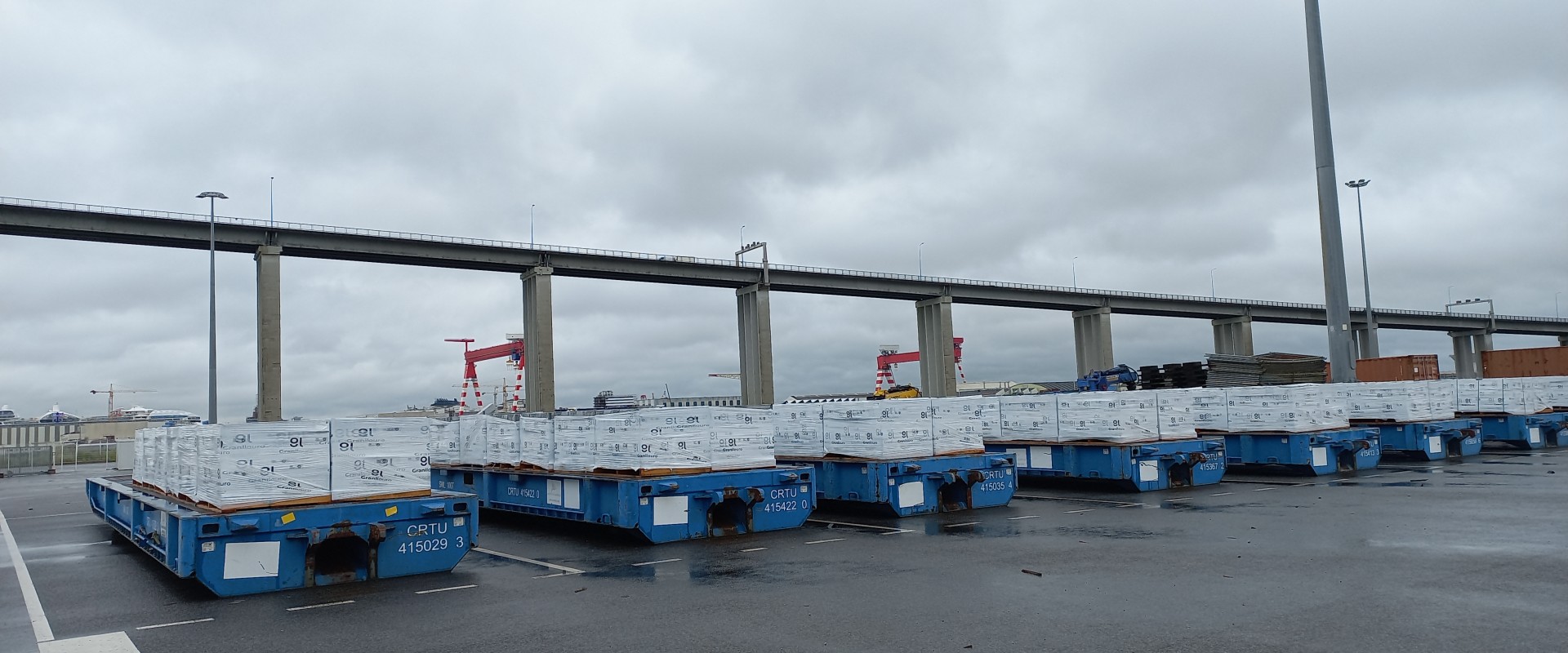
A Successful Sea-to-Rail Trial for Granite
Following the positive outcome of a trial multimodal transport operation at the ro-ro terminal at the end of 2023, 3 000 tonnes of granite arriving from Galicia via the Vigo‒Montoir shipping service are being regularly conveyed by train from the port installations at Montoir de Bretagne to the City of Lyon. This cargo, which previously travelled by road, is being used to refurbish the concourse of Lyon Part-Dieu railway station.
A specialist in urban development projects and notably in the utilization of natural stone, the De Filippis Company won the contract to import Spanish granite by prioritizing sea and rail modal shift. De Filippis is employing the services of Somaloir, a port cargo handler specializing in ro-ro logistics, and the representative of the Suardiaz Group at Montoir de Bretagne. Somaloir is organizing the transport operations door-to-door, in cooperation with the various partners. This collective approach under the Oportunity banner seeks to propose a bespoke multimodal transport solution built around the long-established ro-ro shipping service between Vigo and Montoir.
CO2 Emissions Divided by Five
The granite arriving from Galicia is conveyed from the Port of Vigo aboard Suardiaz ro-ro vessels, and unloaded in the storage areas at the Montoir de Bretagne ro-ro terminal. It is then loaded at the terminal onto wagons operated by SNCF Freight Division on the port-based rail network. Convoys carrying 80 tonnes a week follow the route of the Centre Europe Atlantic railway line (VFCEA) all the way to Lyon. The flows are handled via SNCF Freight Division’s single wagonload system. This solution makes it possible to divide the CO2 emissions on this journey by five, a saving of 335 tonnes of CO2 or more than 3 000 journeys between Lyon and Paris by road.
This system demonstrates all the potential for developing logistical solutions combining short-sea shipping services and consolidated rail transport operations capable of significantly reducing the carbon footprint. It also makes it possible to develop return flows from the Lyon area. Making this type of service permanent offers interesting prospects for shippers in the Rhone-Alpes basin, in their desire to export their goods to the Iberian Peninsula, and in the near future to the Eastern Seaboard of the USA: the entry into service in 2025 of the Néoliner, the sail-powered cargo vessel designed by Néoline, will offer a global low-carbon transport solution for customers using Nantes ‒ Saint Nazaire Port’s facilities.
Contacts at Nantes Saint-Nazaire Port – Jean-Luc Bernard & Jérôme Kieser